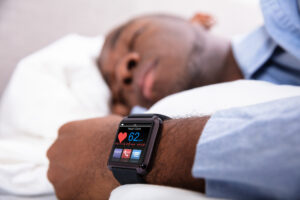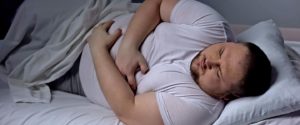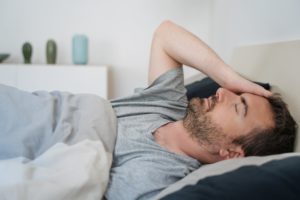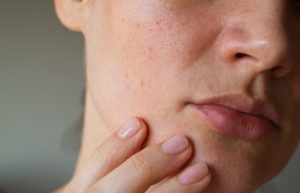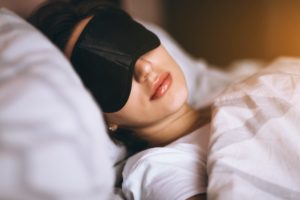When you buy through our links, we may earn a commission. Products or services may be offered by an affiliated entity. Learn more.
Sleep and Blood Glucose Levels
Every night—regardless of whether you sleep—your blood sugar levels increase as a part of the natural human circadian rhythm cycle. Blood sugar levels also increase during sleep. Blood sugar fluctuations that occur overnight and during sleep are normal and not a cause for concern for most healthy people.
Sleep also plays an important role in maintaining healthy blood sugar levels. Over the past few decades, the overall average number of hours slept each night has apparently decreased. This decrease in sleep may have contributed to the increase in obesity and diabetes that occurred over the same stretch of time. Obesity and diabetes are affected by blood sugar levels, while one’s blood sugar also impacts obesity and diabetes. As a result, blood sugar could be one of the factors involved in weight loss and sleep.
Sleep and physical health are closely connected, so it’s not surprising that sleep affects blood sugar levels. However, the relationship between sleep and blood sugar is complex. There isn’t a simple formula that demonstrates a relationship between the amount of sleep and a corresponding increase or decrease in blood sugar.
Looking to improve your sleep? Try upgrading your mattress.
Can Sleep Raise or Lower Glucose Levels?
Although it sounds contradictory, sleep can both raise and lower glucose levels. Our bodies experience a cycle of changes every day—called a circadian rhythm—which naturally raises blood sugar levels at night and when a person sleeps. These natural blood sugar elevations are not a cause for concern.
Restorative sleep might also lower unhealthy blood sugar levels by promoting healthy systems. Decreased sleep isa risk factor for increased blood sugar levels. Even partial sleep deprivation over one night increases insulin resistance, which can in turn increase blood sugar levels. As a result, a lack of sleep has been associated with diabetes, a blood sugar disorder.
More research is needed to better understand the connection between sleep and blood sugar. So far, the following factors have been found to influence the relationship between sleep and blood sugar levels:
- The amount of time a person sleeps
- The stages of sleep a person experiences
- The time of daya person sleeps
- A person’s age
- A person’s eating habits
Why Does Sleep Affect Blood Sugar?
Researchers are beginning to uncover why sleep affects blood sugar and which underlying mechanisms are at play. So far, they’ve learned that the following physiological factors play a role in the relationship between sleep and blood sugar:
- Cortisol is increased by sleep deprivation and increases glucose
- Insulin sensitivity is reduced by sleep deprivation and impacts glucose
- The time of day a person sleeps impacts insulin and cortisol levels, both of which affect glucose
- Increases in growth hormone accompany glucose increases during sleep
- Oxidative stress and inflammation are increased by sleep deprivation and impact glucose
- C-reactive protein is increased by sleep deprivation and can impact glucose
- Inflammatory markers IL-6 and TNF-alpha are increased by sleep deprivation and can cause insulin resistance, which impacts glucose
How Does Blood Glucose Affect Sleep?
Just as sleep affects blood sugar levels, blood sugar levels may also impact sleep quality. A study of people with type 2 diabetes found that those with higher blood sugar levels experience poorer sleep. Another study found that 62% of people with glucose levels in the pre-diabetes range are likely to have poor sleep, compared to 46% of people with normal glucose levels.
Researchers aren’t certain why increased blood sugar may be associated with poor sleep and more study is necessary to understand the relationship.
Can Low Blood Sugar Cause Sleep Problems?
Low blood sugar, called hypoglycemia, can cause sleep problems. Hypoglycemia can occur in people with or without diabetes. Nocturnal hypoglycemia is a form of hypoglycemia that occurs at night.
According to the National Institute of Diabetes and Digestive and Kidney Diseases, low blood sugar during sleep can cause the following symptoms:
- Nightmares
- Crying or yelling during sleep
- Sweating profusely
- Feeling irritable or confused upon waking
Do Sleep Problems Affect Blood Sugar?
Since a lack of sleep and blood sugar levels are related, it makes sense that not sleeping well can raise blood sugar levels. Researchers have suggested the following connections between sugar and lack of sleep or sleep problems:
- Sleep disordered breathing is associated with higher glucose levels
- Obstructive sleep apnea[/ocm_reference is associated with impared glucose tolerance
- More severe sleep breathing issues are associated with higher blood sugar
- Obstructive sleep apnea severity is associated with increased fasting glucose
- Poor sleep is associated with a reduced ability to control glucose levels in diabetic patients
- Inadequate sleep is associated with type 2 diabetes biomarkers, even in children
- Sleep loss is associated with increased glucose levels in hospitalized patients with and without diabetes

Still have questions? Ask our community!
Join our Sleep Care Community — a trusted hub of sleep health professionals, product specialists, and people just like you. Whether you need expert sleep advice for your insomnia or you’re searching for the perfect mattress, we’ve got you covered. Get personalized guidance from the experts who know sleep best.
References
8 Sources
-
Spiegel, K., Knutson, K., Leproult, R., Tasali, E., & Cauter, E. V. (2005). Sleep loss: a novel risk factor for insulin resistance and Type 2 diabetes. Journal of Applied Physiology, 99(5), 2008–2019.
https://pubmed.ncbi.nlm.nih.gov/16227462/ -
Spiegel, K., Leproult, R., & Van Cauter, E. (1999). Impact of sleep debt on metabolic and endocrine function. Lancet (London, England), 354(9188), 1435–1439.
https://pubmed.ncbi.nlm.nih.gov/10543671/ -
Meier-Ewert, H. K., Ridker, P. M., Rifai, N., Regan, M. M., Price, N. J., Dinges, D. F., & Mullington, J. M. (2004). Effect of sleep loss on C-Reactive protein, an inflammatory marker of cardiovascular risk. Journal of the American College of Cardiology, 43(4), 678–683.
https://pubmed.ncbi.nlm.nih.gov/14975482/ -
Vgontzas, A. N., Papanicolaou, D. A., Bixler, E. O., Lotsikas, A., Zachman, K., Kales, A., Prolo, P., Wong, M.-L., Licinio, J., Gold, P. W., Hermida, R. C., Mastorakos, G., & Chrousos, G. P. (1999). Circadian Interleukin-6 Secretion and Quantity and Depth of Sleep. The Journal of Clinical Endocrinology & Metabolism, 84(8), 2603–2607.
https://pubmed.ncbi.nlm.nih.gov/10443646/ -
Vgontzas, A. N., Zoumakis, E., Bixler, E. O., Lin, H.-M., Follett, H., Kales, A., & Chrousos, G. P. (2004). Adverse Effects of Modest Sleep Restriction on Sleepiness, Performance, and Inflammatory Cytokines. The Journal of Clinical Endocrinology & Metabolism, 89(5), 2119–2126.
https://pubmed.ncbi.nlm.nih.gov/15126529/ -
Yoda, K., Inaba, M., Hamamoto, K., Yoda, M., Tsuda, A., Mori, K., Imanishi, Y., Emoto, M., & Yamada, S. (2015). Association between poor glycemic control, impaired sleep quality, and increased arterial thickening in type 2 diabetic patients. PloS one, 10(4), e0122521.
https://pubmed.ncbi.nlm.nih.gov/25875738/ -
Iyegha, I. D., Chieh, A. Y., Bryant, B. M., & Li, L. (2019). Associations between poor sleep and glucose intolerance in prediabetes. Psychoneuroendocrinology, 110, 104444.
https://pubmed.ncbi.nlm.nih.gov/31546116/ -
National Institute of Diabetes and Digestive and Kidney Diseases. (2016, August). Low Blood Glucose (Hypoglycemia).
https://www.niddk.nih.gov/health-information/diabetes/overview/preventing-problems/low-blood-glucose-hypoglycemia








